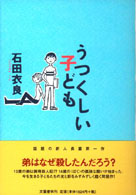- ホーム
- > 洋書
- > 英文書
- > Philosophy
基本説明
New in paperback. Hardcover was published in 2003. The first full study of Plato's early followers.
Full Description
The Heirs of Plato is the first book exclusively devoted to an in-depth study of the various directions in philosophy taken by Plato's followers in the first seventy years or so following his death in 347 BC - the period generally known as 'The Old Academy'. Speusippus, Xenocrates, and Polemon, the three successive heads of the Academy in this period, though personally devoted to the memory of Plato, were independent philosophers in their own right, and felt free to develop his heritage in individual directions. This is also true of other personalities attached to the school, such as Philippus of Opus, Heraclides of Pontus, and Crantor of Soli.
After an introductory chapter on the school itself, and a summary of Plato's philosophical heritage, John Dillon devotes a chapter to each of the school heads, and another to the other chief characters, exploring both what holds them together and what sets them apart. There is a final short chapter devoted to the turn away from dogmatism to scepticism under Arcesilaus in the 270s, and some reflections on the intellectual debt of Stoicism to the thought of Polemon, in particular.
Dillon's clear and accessible book fills a significant gap in our understanding of Plato's immediate philosophical influence, and will be of great value to scholars and historians of ancient philosophy.
Contents
A. THE PHYSICAL STRUCTURE OF THE ACADEMY ; A. LIFE AND WORKS ; A. LIFE AND WORKS ; A. LIFE AND WORKS ; A. PHILIPPUS OF OPUS ; 6. EPILOGUE: ARCESILAUS AND THE TURN TO SCEPTICISM








